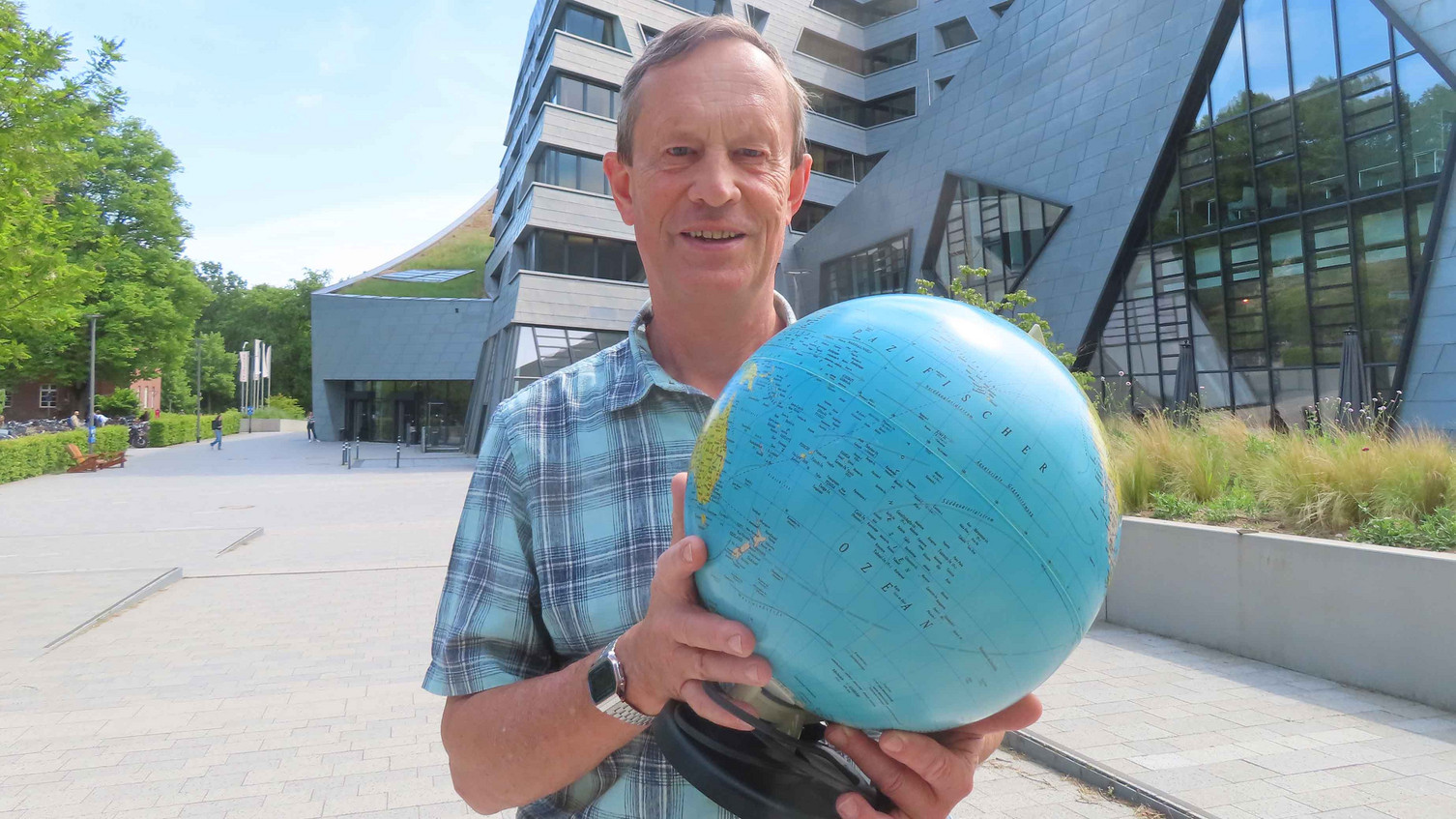Goodbye: apl. Prof. Dr. Peter Pez
Geography is the sustainability discipline par excellence
2025-05-21 Transport geography, which is always closely linked to transport policy and planning, is his main field of research and his great passion. However, the teaching of apl. Prof. Dr. Peter Pez actually covers the wide variety of geography: climatology, geomorphology, economics, retail, urban and rural settlements, agriculture, tourism, demography, migration, and development geography. “The science of space must take all sub-areas into account and integrate them. With this perspective, it is not only possible to comprehensively identify problem structures, but also to find adequate solutions – the largest part of sustainability takes place in a spatial context.”
It all started with Kuwi
In 1990, he joined the University of Lüneburg as a research assistant as part of a program designed to alleviate staff shortages. Applied Cultural Studies had been launched four years earlier and was expanding rapidly. However, additional staff alone were not enough; structural changes were needed. “As a youngster, I quickly took on two standard lectures and large excursions in addition to seminars. At other universities, such tasks were reserved for established professors. After only a short time, we also succeeded in streamlining, optimizing, and orienting our geography program toward the professional field, not only within cultural studies but also in environmental studies and for our teacher training program. This baptism of fire allowed me to mature into an all-rounder in a very short time.” In 1997, Peter Pez, who was now permanently employed as an academic advisor, habilitated with a thesis on transport choice and its influenceability using the examples of Kiel and Lüneburg. His efforts to improve teaching efficiency, simplify teaching structures, and integrate teaching and all other academic tasks into a performance-based allocation of resources shaped his work at the university in the early 2000s as Dean of Studies and Vice Dean of Budget, and from 2009 to 2012 as Dean of the Faculty of Education, Cultural and Social Sciences and Cultural Studies. Cultural Studies.
Uni must go out
“The academic ivory tower was never my thing. I am a child of applied geography and therefore not only seek to explain spatial structures, but also want to identify problem areas and options for action—both inside and outside the university.” This was already the case at the beginning of his career in Lüneburg, when he provided scientific support for the implementation of inner-city traffic calming measures (1991-93) as part of the traffic development plan (VEP). Since then, his initiatives and comments on developments in the city and region have been unending, and conversely, these are often the initial spark for scientific modeling and paradigm development. In the “Radverkehrsförderung 3.0” (Cycling Promotion 3.0) project, which is currently being implemented in the city and district of Lüneburg, he anchored demands such as accessibility, network permeability, analog and digital network transparency, and attractive cycling routes. “With the latter,” explains the Flensburg native, ”I wanted to make it clear that bike routes should not simply be docked onto main roads, as is unfortunately often the case, but should be subject to quality standards, so to speak, and be enjoyable to use.” The Federal Ministry of Digital and Transport valued the strategy developed with the district of Lüneburg, which involved scientific research and political and planning implementation in the Rad pilot project, at €1.8 million.
PLANNED, EFFICIENT, EAGER
Short surnames invite you to read them as acronyms: a geographer always has a Plan (= map) at hand, wherever he is. “I try to avoid improvisation as much as possible. I prefer to optimize the Efficiency of all processes in teaching, research, and administration with good planning. And I like to get things done quickly, without putting anything off until later! That also applies to email.”
In retirement, he would like to travel above all else: “Exploring the world is probably in the genes of a Raumwissenschaftler (space scientist), and there is still too much of the world waiting to be discovered,” says Pez, pausing briefly before continuing, “especially the P-olar regions, the whole of E-urasia and the Z-ones of climates and cultures.”

